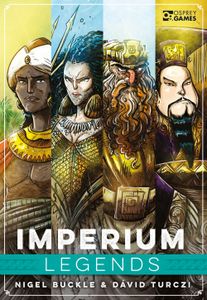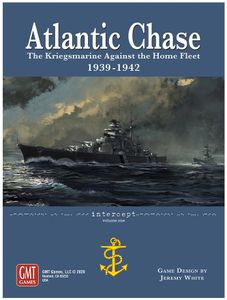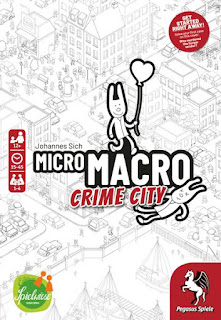Here's a look at my 10 favorite games published in 2021.
(Or else made available in North America so late in 2020 that there was no way to really play them before the calendar flipped.)
#10
THE CREW: MISSION DEEP SEA (designed by Thomas Sing, published by Kosmos)
Last year, I included the original The Crew in my Top 10 as well. It was an unheard-of cooperative trick-taking game and a damn brilliant design. The new incarnation is just as brilliant, but less of a revelation than its predecessor.
This time around, player are exploring the ocean depths—another pasted-on theme. No matter: the new tasks players must accomplish on each of the 50 missions are even more varied and exciting than in the previous volume.
#9
IMPERIUM: CLASSICS/LEGENDS (designed by Nigel Buckle & David Turczi, published by Osprey Games)
Imperium is one of the games on this list that prove that deck-building games still have legs, and that their core mechanism hasn't been fully mined yet.
Imperium is one of the games on this list that prove that deck-building games still have legs, and that their core mechanism hasn't been fully mined yet.
Each civilization begins with its own starting deck, nation deck and development deck, which create a completely fresh "civ building" experience from game to game. Not only do different civs function differently (some of them wildly so, like the Arthurians), but repeat games with the same civ will unfold along new paths and at different speeds, thanks to the luck of the draw.
The stand-alone sister games function as an expansion for each other, and offer a menu of 16 different civilations to pit against one another. Bonus points for fitting materials from both games into a single box once you ditch the ill-conceived insert.
(You can read my flash review here.)
A reskin of Battlestar Galactica set in the monster-infested world of H.P. Lovecraft.
To be fair, this is more than a reskin: Fanchi took everything that rubbed me the wrong way in the original hidden-traitor game and sanded it down to a smooth finish. More theme & dread, more characters, and—perhaps most of all—freedom from a licensed franchise all make for a better game that will be allowed to grow organically.
(You can read my flash review here.)
ATLANTIC CHASE (designed by Jeremy White, published by GMT Games)
Solo wargames are not a rarity by any stretch. But when Jerry White gives you one, you know you're holding something special. (The game can also accommodate two players, by the way.)
Not only does Atlantic Chase feature some of the most inventive game mechanics I've encountered in the entire year, but it also makes learning over 100 pages of rules like it's nothing. Seriously. So if you're intrigued by a WWII naval game that makes you wonder where exactly your ships are along their trajectory (and forget about the enemy's...), jump right in. The water's just fine.
(You can read my full review here.)
#6
BONFIRE (designed by Stefan Feld, published by H@ll Games and Pegasus Spiele)
Can't have a year without a Feld design in my Top 10, can we?
Can't have a year without a Feld design in my Top 10, can we?
It's a strange theme with gnomes and magical bonfires (that need to be lit, of course!), but it's also very clever in how it requires players to generate their own action tokens and then make the most of them.
Point salad? You bet. But maybe one of the tastiest of those salads you'll ever try.
(You can read my flash review here.)
#5
PRAGA CAPUT REGNI (designed by Vladimir Suchy, published by Rio Grande Games)
Praga looks like an old-school action selection game, but the action wheel at the heart of the whole system drives the show like nothing you've seen before. And how many games out there tempt you into building the famous Charles Bridge—with eggs?
Praga looks like an old-school action selection game, but the action wheel at the heart of the whole system drives the show like nothing you've seen before. And how many games out there tempt you into building the famous Charles Bridge—with eggs?
(You can read my flash review here.)
#4
Another deck builder? Why, yes. With worker placement thrown on top? That's right.
Arnak is not the only game to bridge that mechanism gap this year (Dune: Imperium also did something interesting in that department), but it's the one I keep coming back to. It's like an adventure movie I can't get enough of.
(You can read my flash review here.)
#3
For a while I gave up on boardgaming's most prestigious award, Germany's very own Spiel des Jahres: over the years, the jury has gone from praising complex games (that kind I like!) to rewarding simple family games I rarely play anymore. For some reason, in 2020 I decided that from now on I would always buy and try the winners of the SdJ, if only for the encyclopedic knowledge—"Yes, I've played it, I know how it works." Oh boy.
MicroMacro: Crime City is nothing short of genius, both in its simplicity and in the pure fun it generates.
(You can read my flash review here.)
#2
Yes, one more entry in the C&C line of wargames. This time we're fighing in medieval Japan! And the system is an absolute delight, with Dragon cards alongside Command cards, allowing warriors to perform all manners of feats, plus an honor system to frighten the most seasoned combattant. (Make SURE you don't retreat, of there'll be hell to pay.)
And with 40 scenarios included in the base game, this is by far the most generous C&C game yet.
#1
HALLERTAU (designed by Uwe Rosenberg, published by Lookout Games)
Yes, that Rosenberg, of Agricola fame. And yes, another farming game.
This one feels all at once different from the others that came before, and somehow familiar in a "distant relative" kind of way. You're still sowing and harvesting and raising and slaughtering, but both the worker placement and the spending mechanisms are new and intriguing.
It's a beast of a game for sure, but ultimately simpler than the size of the box might suggest. One of my favorite Rosenberg designs, and there have been several.
(You can read flash review here.)
DISAPPOINTMENTS
I define "disappointments" as games I expected a lot from, and which failed to deliver.
And there were quite a few of those in 2021. Here are the "top" three.
Game over indeed.
For some reason I expected to have a blast playing this Richard Garfield design about vampires running around, biting humans and needing to get back to the castle before sunrise. Meh. I mean, the game works and it's kind of entertaining, but there's nothing special here. After a handful of games I feel like leaving it to its eternal rest.
Clank! does this much better, and from the same publisher, to boot.
I'm a huge Martin Wallace fan, but these past few years it seems he's done nothing remarkable—and Rocketmen is sadly no exception.
It's not just an ordinary game: it's an actively bad one. On your turn, you can either throw rocket parts in your stockpile, or launch a mission and see how far you get. That's it.
I scrubbed the game after only one play. This ain't getting anyone to the moon—or anywhere else for that matter.
(I'm glad I only ordered the base game, and none of the deluxe pimped-out components/accessories the publisher is trying to peddle out there.)
Last year, my third disappointement was also a space-themed game. I'm starting to think there might be some kind of low-orbit curse hanging over me...
STRAGGLERS
Let's end on a high note with three games that would have made the list had I encountered them back in the year when they were published.
Let's end on a high note with three games that would have made the list had I encountered them back in the year when they were published.
A 30-minute, Shakespeare-themed solo design with hidden movement mechanics all driven by a genius system of cards—with holes in them!—that absolutely blew my mind. You have to try it to believe it.
Another solo wargame. (Can you say pandemic?) Here, adversaries are drawn from three different cups, depending on the situation. But circumstances will move some pieces from cup to cup, so the dreaded enemies you thought you had all the time in the world to prepare for might show up early after all.
Hey, it's the 9th century, you're Charlemagne, and you have to get a grip on Europe before things boil over. Just get to it.
Last year I listed the first game in the series (Antietam) as a straggler, so this year it's Shiloh's turn. (Maybe I'll get to play the next volume in the series the year it comes out. Maybe.)
Last year I listed the first game in the series (Antietam) as a straggler, so this year it's Shiloh's turn. (Maybe I'll get to play the next volume in the series the year it comes out. Maybe.)
Fun game, fair simulation, great American Civil War feel; a little fiddly but frankly not that much, and maybe a little long compared to its sister game. Still a keeper, and one I wish I'd played earlier.
(Yeah, yeah, there was also a magazine game that used the same system, but it turned out to be pretty weak, so I'm happy not to consider it part of the canon. Pun intended.)
# # #


















No comments:
Post a Comment